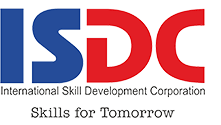R Programming
The objective of this module to make students exercise the fundamentals of statistical analysis in R environment. They would be able to analysis data for the purpose of exploration using Descriptive and Inferential Statistics. Students will understand Probability and Sampling Distributions and learn the creative application of Linear Regression in multivariate context for predictive purpose.
Python Programming
Python Programming module is intended for students who wish to learn the Python programming language. This module is highly important so as to proceed with this programme. The module comprises of Programming basics with regards to Python Language such as Data Types, Operators, Functions, Classes and Exception Handling.
Structured Query Language (SQL)
In this course, the students will learn the basics of the SQL/No SQL and the Relational Databases. They will learn about the Relational Model and Relational Model concepts and constraints. The students will get exposure to key concepts with regards to SQL Language and DBMS such as Normalization, Transaction Processing along-side an exposure to No SQL programming.
Big Data Analytics
This module forms an introduction as well an in-depth study in the field of Big Data and Hadoop. It comprises of the fundamentals as well as advanced topics needed to progress in this technology. The students will learn about the applications, usage and several use case scenarios pertaining to Big Data- Hadoop where they can use the knowledge and progress ahead.
Machine learning and Artificial Intelligence
This module comprises of conceptual, statistical and Machine Learning algorithms. It covers all the necessary models pertaining to Machine Learning such as Regression, Decision Trees, Support Vectors, Clustering, Association Analysis and Dimensionality Reduction.
Deep Learning
This module forms an introduction as well an in-depth study in the field of Deep Learning. The module enlists all the necessary and fundamental topics needed to learn Deep Learning and its applications. Starting from the basics of Deep Neural Networks, the module progresses through the Regularization, Optimization, Convolutional Neural Networks, Sequence Analysis and Applications in Real World Scenarios.
Natural Language Processing
This module aims to provide an exposure to students based on Natural Language Processing Techniques, Algorithms and Analytics based on Textual Data. The module comprises of NLP basics, Feature Extraction, Relationship Extraction, Text Categorization, Clustering and Topic Modelling Algorithms and Practices.
Computer Vision
In this module the students will learn basic principles of Image Formation, Image Processing Algorithms, and Algorithms for 3D Reconstruction and Recognition from Single and Multiple Images. This module emphasizes on core vision tasks of Scene understanding and Recognition.







